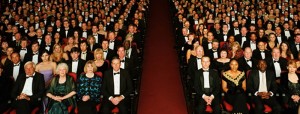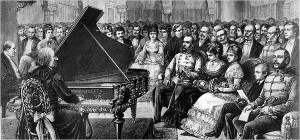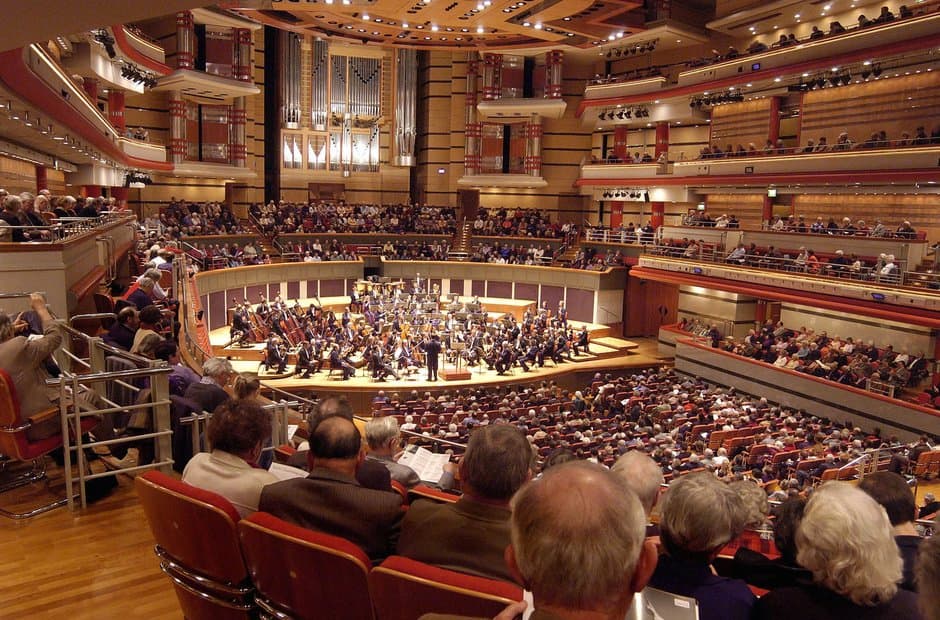
Credit: http://www.simonbrown.org.uk/
In fact, most of us who work in classical music are far from snobby: we are, by and large, ordinary people with homes and mortgages, kids and pets, who just happen to work with extraordinary music. And if you examine the conventions of the classical concert, you will find many similarities with theatre – the etiquette of applause, being quiet and respectful during the performance, for example – and no one seems to suggest that theatre is “snobby”!
As a regular concert goer and voracious consumer of live music, my feeling is that much of the snobbery comes not from those of us who work in classical music, but simply from entrenched attitudes and misconceptions which have developed over the course of the past 150 years. Prior to the mid-1850s, concerts were far less formal affairs, audience members could eat, drink and chat during the performance, and the seemingly rigid rules of concert etiquette had not yet been formulated (Franz Liszt, for example, who did much to shape the piano recital as we know it today, would not have expected audiences to hold their applause until the end.)
Wagner, arr. J Rubinstein – Siegfried Idyll

Credit: https://static01.nyt.com/
But if you should find yourself sitting next to a classical music snob at a concert or opera, you might offer them this simple checklist…..
1. Don’t make people feel bad about what they are listening. People who feel bad about their listening habits may stop listening altogether.
2. Snobbery leads to pretension and pretension leads to exclusivity, clubs and cliques. Not helpful at a time when we should be encouraging people to come to classical concerts.
3. Get over the whole “genre thing”: it’s ok to say you don’t like Schoenberg, Stockhausen, Birtwistle, Glass et al
4. Just because it’s popular, doesn’t mean it’s all bad
5. Don’t blind the novice concert-goer/listener with obscure/incomprehensible classical music terminology. You want him/her to come to the next performance
6. Remember you’re not the only person in the world who frequents the Wigmore Hall/Concertgebouw/Musikverein/Carnegie Hall
7. Not everyone likes Wagner. Or Mahler. Or Schoenberg. But the sky’s not going to fall in because of this.
8. Don’t moan about BBC Radio Three being “better in the old days”.
9. You don’t have to be serious about something to be serious about something.
10. Don’t ever call a conductor or other senior musician ‘Maestro’
Mahler – Adagietto





I am far from being any sort of snob, but some of these are questionable. While 1 and 2 are spot on, No.10 is absurd in much of the world. Here in Mexico all professional musicians are called “maestro” as a term of respect. Why would one not adhere to that?
I think they were talking about British conventions – I’m not sure about customs in France, Germany, Europe, and the rest of the world, but we never really refer to anyone – musician or conductor, as maestro – we tend to just use their names, usually first names, sometimes Mr/Ms if we don’t know them very well.
Como nos referir à um maestro ?
Mr. ? Sr ?
Maestro.
You failed to mention the snobbery in choices of performances. Beethoven, Bach, Brahms and Mozart are unquestionably great, but they have dominated the repertoire in concert halls and on Classical radio for decades. Why not more of Sibelius, Saint-Seans, Casella, Penderecki and so many others? And the neglect of the two most innovative and prophetic symphonies of the early Romantic era, Liszt’s Faust and Dante symphonies, is inexcusable.
Why shouldn’t senior musicians be called Maestro
I enjoy being a classical snob, and more specifically a Renaissance and Baroque music snob!
BTW whoever said “Handel was the greatest composer who ever lived” was 100% correct. No Mozart or Beethoven for me! Renaissance and Baroque for the win!